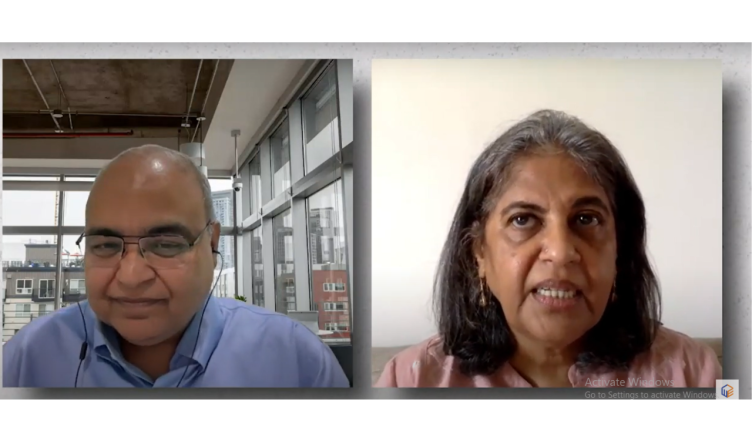
How Can You Remain Relevant in ever changing World?
Our organization comprises mostly Gen Zs. They are ambitious, knowledgeable, eager to learn, very high energy, and very hard working. While I wanted W.E.-Matter to be a market leader in India, they want it to be a global leader. Keeping pace with them is challenging. I work hard to stay at par with them.
While interviewing Rama Bijapurkar (Link to the interview : https://youtu.be/Vvlllf5v_YE?si=YWeiRhuISMFe2xSg), a leading figure and authority in marketing strategy and consumer behaviour, for our W.E. Leadership Interview Series, I tried getting answers to my questions to stay relevant and keep pace with the youngsters.
I asked her how she managed to stay relevant over the years. She told me that what she learned during her time at IIM Ahmedabad in the 1970s had become obsolete in the following decade. Yet, as she explains, it was her generation that thrived for many decades despite the rapid economic, technological, and social changes.
She quoted Ravi Matthai, the first full-time director of IIMA, “We teach you how to learn so that you can learn the rest of your life.” This ability to adapt and learn became the reason her generation succeeded, even amidst the great upheavals in India’s economic landscape.
In 1991, India underwent economic liberalisation, giving rise to a competitive market. This was soon followed by the rise of the internet, improving global connectivity and later culminating in the era of globalisation. Foreign companies flocked to India and many Indian companies expanded and moved overseas.
These rapid changes demanded constant learning. Without it, professionals risked having their knowledge and skill quickly become obsolete. Hence, in order to remain relevant in such a fast-paced world, one must be willing to continuously adapt and learn.
By the late 2010s, the Indian economy had started to stabilize. With no drastic changes in the market, professionals expected their careers to become easier. But, advancements in the field of Artificial Intelligence has brought another wave of changes, further cementing the need for constant learning.
Professionals should remember that learning should not be sporadic. It should be continuous and consistent. What you learn today should not become obsolete in just a few years. Instead, the learning process must anticipate future developments.
How Can You Learn and Adapt to Stay Relevant?
1. Assess how your current role will change: Regularly evaluate how your role might evolve and identify the skills and capabilities that will be needed. The changes will usually be determined by the social milieu and technological developments.
2. Anticipate when the current role or business may become obsolete: Observe the changes and liberalization in legislation, alternate delivery models, disintermediation, backward and forward integration by large players. Evaluate the impact of these changes on your business and role. Will your business or your role become irrelevant? Is the time to identify potential new roles round the corner?.
3. Acquire new skills: Identify relevant courses — whether classroom or virtual. More importantly seek out opportunities to develop skills and practical knowledge. Gain as much experiential knowledge as possible for the new role.
4. Look for the next big project: The organization is pursuing the next big project as the leaders believe that this will be the new way of doing business. Be proactive in volunteering for such new and challenging projects in your organisation. If you only perform your given duties, you’ll stay relevant only for your current role. You will lose a critical opportunity for growth and development.
5. Explore new roles within your organisation: Continuously seek out opportunities for advancement or transition within your company.
6. Exit before your organisation becomes obsolete: If your organisation fails to adapt itself to market changes, it could become irrelevant. Prepare to move to a more future-focused organisation before it happens.
7. Monitor the future of your industry: Evaluate, if and when the industry will become obsolete. Be ready to transition to a new sector.
For example, 25 years ago, it was clear that only major consultancy firms like McKinsey, BCG, or Bain would survive the shakeout in the industry. Many smaller firms fell by the wayside and even some large ones couldn’t avoid closing down. Only those strategy consultants who anticipated this change and planned ahead had successfully transitioned to new roles, while others struggled to survive.
In conclusion, staying relevant in today’s continuously changing landscape requires a commitment to lifelong learning and adaptability — those who continuously seek to expand their knowledge and skills will not only keep up with this change but thrive in the face of it. I have been following these principles to stay relevant, create unique solutions to enable organizational and individual growth, and keep pace with the young colleagues.
What have you been doing to keep pace with the ever-changing world?